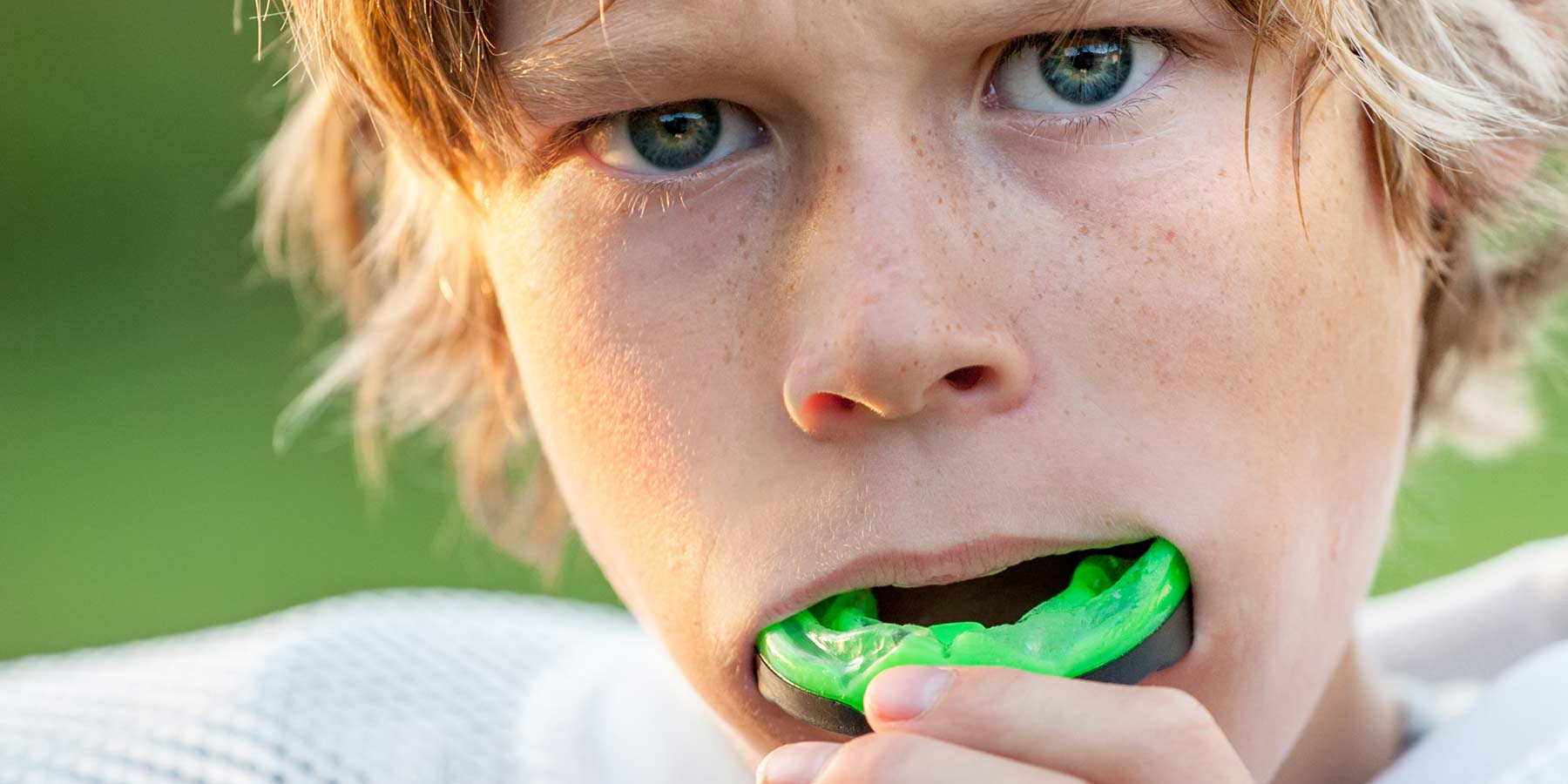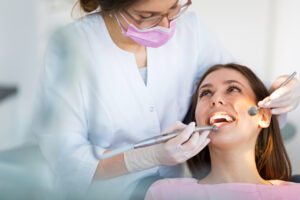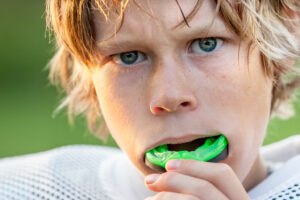
Active and competitive sports have grown immensely over the past few years and it’s been estimated that 20-25 million adolescents participate in a variety of competitive sports. With this huge amount of participation, the occurrence of injuries also increases substantially. It has been reported that almost 40% of all adolescent injuries occur in a competitive sports environment, and of that percentage, 10-20% of them are maxillofacial (injuries to the mouth).
We at DHA have found that maxillofacial injuries are the most common type of injury sustained during competitive sports participation. DHA also has found that athletes are more than 60 times more likely to sustain injuries to the mouth if not wearing a mouth guard. These injuries can often have lasting effects which require costly dental attention.
Participating in active sports while not wearing a protective mouth guard puts an athlete at a higher risk of serious dental injury as well as other head injuries. When receiving a blow to the head, the teeth and jaw often impact together and send a shock through the neck and spine, thus resulting in more substantial injuries that may have been preventable with a mouth guard.
Types of Dental Injuries
Teeth injuries fall into three major categories.
- Fractures
- Avulsion
- Luxation
Fractures consist of root fractures, broken and/or chipped teeth. Various treatments can be used, but dental intervention is required and fracture injuries can be very painful. Avulsion injuries occur when an entire tooth, including its root are knocked out and removed from the gum. In certain instances, the tooth can be reinserted into the gum, but it is more common that surgery will be needed in order to remedy the injury. Luxation is when a tooth is knocked out of position but still firmly anchored in the mouth. Care by a dental professional will be needed to properly fix the tooth’s positioning and ensure proper function. For more serious dental injuries, it is imperative that the patient seek immediate help. DO NOT let an athlete finish the game, set, or match as time is of the essence, and they should be immediately escorted to your dental facility to receive proper treatment.
Prevention of Dental Injuries
Dental injuries are often easily mitigated. Contact sports generally require a protective and custom-fitted mouth guard, but in all competitive sports it is advised to use one to protect the teeth and mouth from injuries. DHA has found that a well fitted and high-quality mouth guard can not only minimize the risk of harmful tooth injury, but also help prevent concussions during blows to the head by stabilizing the mouth and surrounding area. We at DHA recommend the use of a protective mouth guard in all physical sports that contain a risk of blows to the head or mouth. Such sports include but are not limited to: basketball, boxing, ice hockey, football, rugby, soccer, volleyball, baseball, lacrosse, and wrestling. Mouth guards may not always be required by the authority running a particular sports organization, but they are absolutely a smart precaution.
Types of Mouth Guards
- Ready Made. Which come already molded to a stock form.
- Mouth formed. Also referred to as “boil and bite” mouth guards.
- Custom made by dental professional.
The types of mouth guards available vary in price, comfort and effectiveness, but all provide a good level of protection from injury to the mouth and teeth. For the best result, a mouth guard should be comfortable, resistant to tearing and ripping, and resilient overall. A mouth guard should have a good fit, be easy to rinse and clean, as well as not restrict the breathing or speech of the user. A mouth guard is simple, easy to use and can save a fortune in medical oriented bills as well as provide protection from lasting injuries that could negatively impact the rest of a patient’s life.




